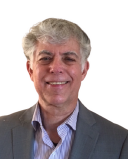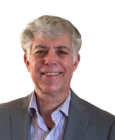Happiness
Maslow, Peak Experiences, and the Body
Joy isn't only in your head.
Updated March 29, 2024 Reviewed by Jessica Schrader
Key points
- Maslow argued that we all have a "wisdom of the body" that enhances growth and actualization.
- He also viewed the body as an important constituent of peak experiences.
- Contemporary researchers on awe and spiritual awakenings are building on Maslow's pioneering work.

It was 70 years ago that Maslow's seminal book Motivation and Personality was published—one of the major psychological works of the 20th century. Offering a lucid, new, optimistic approach to human personality, it laid the foundation for his influential concepts including authenticity, growth mindset, self-actualization, and peak experiences.
When Maslow died suddenly at age 62, he left behind a plethora of unfinished explorations—and, among the most significant, was the body's role in optimal well-being. Now seems a good time to see what his interest was all about.
As Maslow's biographer, I can report that he had a meager predilection for athletic activity or exercise. An appealing vintage photo shows him batting like an academic slugger at a Brooklyn College faculty-student softball game, but it belies his preferred sedentary lifestyle.
True enough, he enjoyed an occasional summer swim. But even after suffering a major heart attack in 1967, he was averse—like many people—to becoming more physically active. Nevertheless, Maslow’s writings reveal a mounting emphasis that personality growth and self-actualization are intertwined with bodily poise and free-flowing vitality—what he described succinctly as gracefulness.
In Motivation and Personality, Maslow first linked these qualities to classic Daoist thought, and the context may surprise you: uninhibited dancing. In an impassioned description, Maslow wrote: "A good dancer can let (oneself) go, becoming a passive instrument fashioned by the music and played upon by it. (One) need have no wish, no criticism, no direction, no self even... Such passive spontaneity can yield some of life's greatest pleasures." In a variety of subsequent writings, he highlighted that example of joyful, egoless bodily fluidity as a paradigm for being fully alive and receptive in every moment.
As Maslow's research on peak experiences developed through the ensuing years, he maintained this strong focus. Thus, in a characteristic lecture, sponsored by the Society for the Advancement of Psychoanalysis and later adapted in his book Toward A Psychology of Being, Maslow related:
"The person in (these) experiences... usually feels (oneself) to be at the (height) of (one's) powers... more intelligent, more perceptive, wittier, stronger, or more graceful than at other times... This is not only subjective but can be seen by the observer. (One) is no longer wasting effort fighting and restraining (oneself); muscles are no longer fighting muscles... Allied to this is the feeling of grace... (it is a true) characteristic of 'being one's real self.'"
Crucially, Maslow saw peak experiences as moments of ultimate authenticity—encompassing not merely verbal ("telling it like it is" ) self-openness, or even exclusively emotional self-openness, but necessarily physical as well. In this regard, peaks embrace all three dimensions of our existence.
To audiences at California's scenic Esalen Institute and elsewhere, he therefore emphasized the relevance of such examples as really knowing how your feet feel wearing different shoes, what food textures you most like or dislike, and of course, how your body reacts to varying types of music, regardless of their popularity. For Maslow, such seemingly mundane concerns were central to what he called the "wisdom of the body"—and its vital importance for our health. For this reason, he urged that body awareness be incorporated into children's education—an idea he found inspiring in Aldous Huxley's then-recent utopian novel, Island.
At Esalen, Maslow during his final years was an admiring participant-observer of tai chi, as well as therapeutic massage and bodywork. These experiences accentuated his view that the body can be a source of wonder, delight, and joy. After an intense bodywork session, he mused in his private journal that "this (experience) is part of finding the real self, the biological core."
However, in case you're wondering, Maslow never advocated any specific “schools” or methods, partly because these approaches were relatively new at the time. Thus, the many books on aikido, bioenergetics, and bodywork by prominent Esalen teachers like George Leonard, Alexander Lowen, and Ida Rolf mainly appeared after Maslow’s death in 1970.
Though Maslow was many decades ahead of his time, support for his outlook is gaining increasing scientific support today across such specialties as humanistic, transpersonal, and somatic psychology. For example, Dr. Steve Taylor's studies of contemporary (spiritual) "awakening experiences" reveal these as often triggered by joyful physical activity of varying type—undoubtedly, reflecting individual preferences—and also that, in their wake, "People often have a healthier, more harmonious relationship to the body." Dr. Kirk Schneider's influential work on awe has shown that it's a "whole body experience" in his words, "involving thought, feeling, sensation, and imagination."
The next time you find yourself soaring emotionally, pay a little attention to your body, too.
References
Hoffman, E. (1996) (Ed.) Future Visions: The Unpublished Papers of Abraham Maslow. Thousand Oaks, CA: Sage.
Hoffman, E. (1999). The Right to be Human: A Biography of Abraham Maslow, 2nd edition. NY: McGraw-Hill.
Hoffman, E. & Bey, T. (2023) Educating for eupsychia: Maslow's unfinished agenda and Aldous Huxley's role in its advancement. Journal of Humanistic Psychology, 63 (4), 459-476.
Maslow, A.H. (1954). Motivation and Personality. NY: Harper & Bros.
Maslow, A.H. (1968). Toward a Psychology of Being, 2nd edition. NY: Van Nostrand Reinhold. Farther Reaches of Human Nature. NY: Viking.
Maslow, A.H. (1971). Farther Reaches of Human Nature. NY: Viking.
Schneider, K. (2009). Awakening to Awe: Personal stories of profound transformation. Northvale, NJ: Jason Aronson.
Taylor, S (2017). The Leap: The Psychology of Spiritual Awakening. Novato, CA: New World Library.




